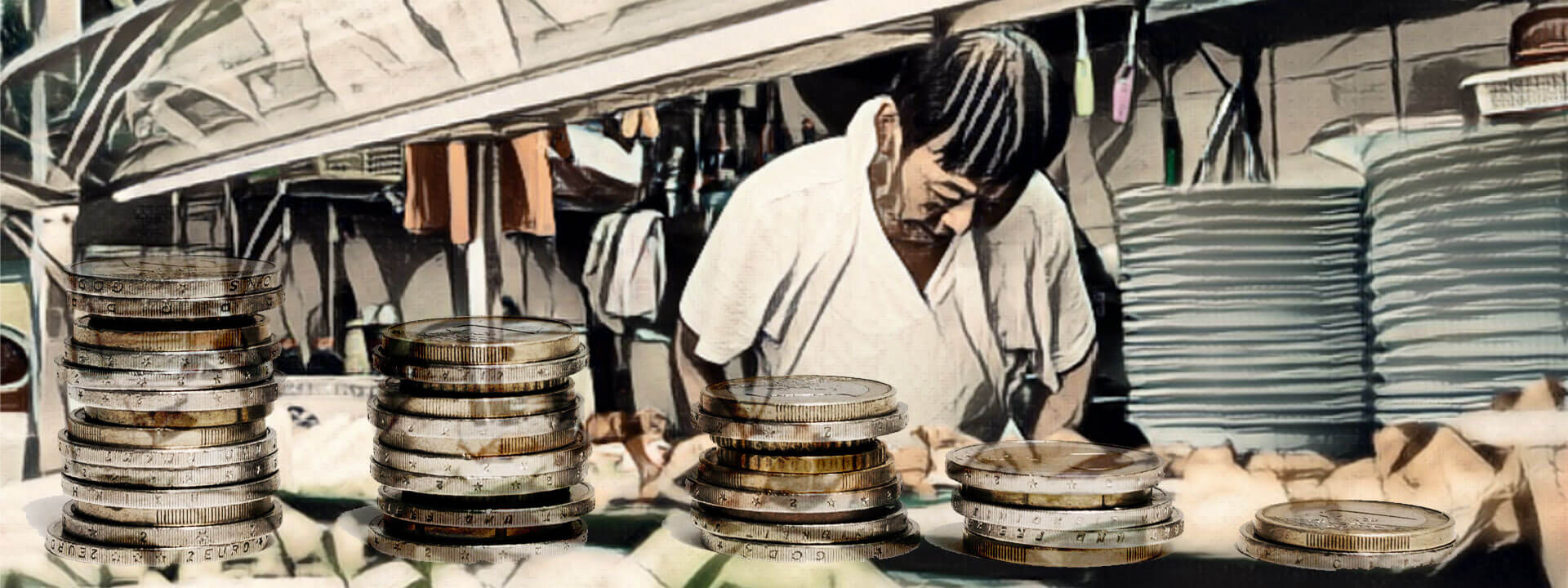|
Getting your Trinity Audio player ready...
|
Singapore has been topping the list of the most expensive cities in the world for the last 11 years, and this year will be no different.
In fact, the most recent increase in the Goods and Services Tax or GST practically guarantees that it wouldn’t have to share the No. 1 spot with any other country.
The 1-percent increase was imposed after the stroke of midnight last New Year’s Eve, which had people who were looking for restaurants to welcome 2024 retreating instead to their homes for more budget-friendly celebrations.
But as the days dragged on and Singaporeans kept getting slapped in the face with skyrocketing prices, they did the unthinkable – at least for citizens of the city-state: they flooded social media with complaints.
In other nations countries the post-pandemic world, people have been complaining about ever-rising prices of goods and services. Singapore, however, is the land of political apathy, and while some of its citizens grumble, most remain stoic regardless of whatever the government imposes on them.
Not this time though, which surprised authorities and had them scrambling to offer more band-aid measures. But so far, Singaporeans are still howling with pain from the GST – Value-Added Tax or VAT in other countries – which after the increase is now at 9 percent.
Of course, it hasn’t been just a simple 1-percent bump in prices. And while Singapore has homegrown billionaires and attracts even more from overseas, a good number of its population of 6 million have barely been making it.
Many Singaporeans are seeking increased government support, particularly after the GST increase. Some believe the government aid they have received so far is just too little to make a real difference.
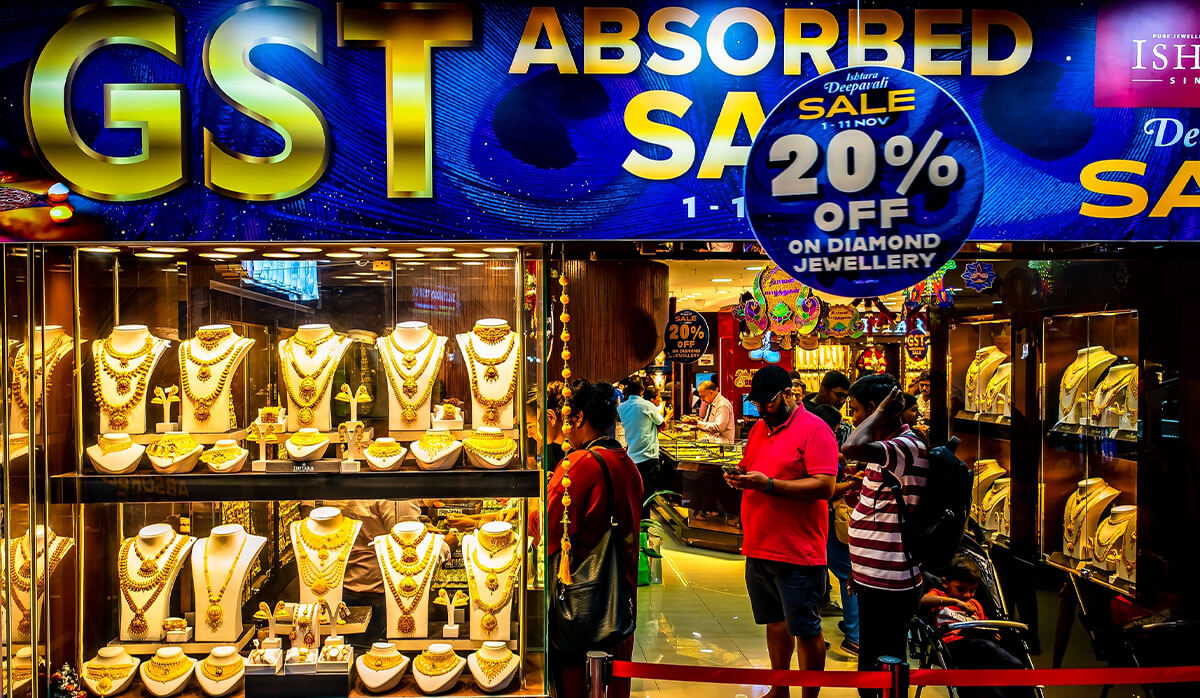
The government levies the GST as a broad-based consumption tax on the import of goods collected by Singaporean customs, as well as nearly all supplies of goods and services in the city-state.
By increasing the GST by 1 percent, companies and businesses will then raise prices for their products and services, as there will be many intermediaries along the food chain – from raw materials, to packaging, to ingredients, to workers.
Even a teenage student living in a rental flat with her family gets that. “The 1 percent is not actually 1 percent,” she tells Asia Democracy Chronicles. “School food has increased from about SGD 0.50 to more than SGD 1 for some stalls. It causes my family to be stressed about finances and be scared that we will have no money to buy food.” (One Singaporean dollar is equivalent to about US$0.74 at current rates.)
“Because I am still studying,” she continues, “I must work at night to make sure I have money to buy food for the next day. Working at night has caused me to sleep in class, so I am not doing well in class, too.” She adds that her family needs to apply for government help “every three to four months.”
The waiting period for the approval of their application takes one or two months. “(It) is very tough for my family. Sometimes my parents will vent their anger and shout at us, too. I think it is not good for everyone’s mental health,” she recounts.
Up, up and away
The GST was introduced in Singapore on April 1, 1994 at the rate of 3 percent. It was increased to 4 percent on Jan. 1, 2003; 5 percent on Jan. 1, 2004; 7 percent on July 1, 2007; 8 percent on Jan. 1 2023; and the current 9 percent on Jan. 1, 2024.
Given the lingering effects of the COVID-19 pandemic on the local economy, there were calls in parliament in 2022 to defer the most recent two-phase increase that was to begin in 2023. The government argued that it needed to be done because of Singapore’s aging population and rising healthcare expenditures.
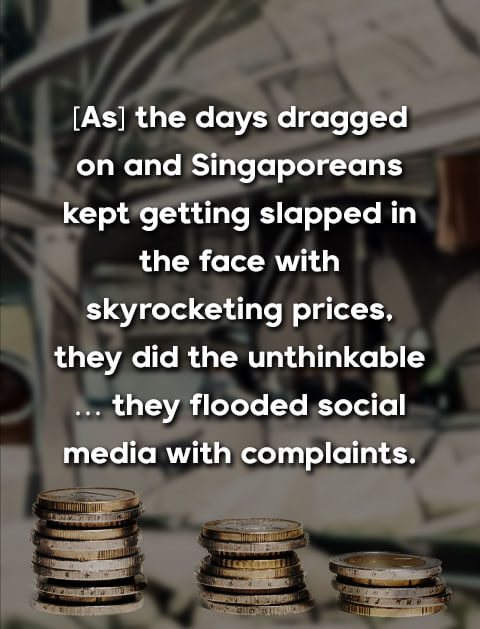 A nearly 30-percent surge in Corporate Income Tax revenue last year had opposition politicians suggesting again that the rise in GST in 2024 be deferred. But Deputy Prime Minister Lawrence Wong said that doing so would “only store up more problems for the future, leaving us with fewer resources to take care of our growing fiscal needs.”
A nearly 30-percent surge in Corporate Income Tax revenue last year had opposition politicians suggesting again that the rise in GST in 2024 be deferred. But Deputy Prime Minister Lawrence Wong said that doing so would “only store up more problems for the future, leaving us with fewer resources to take care of our growing fiscal needs.”
More Singaporeans are now questioning the trade-off between the nation’s future economic security and their present well-being. This shift in perspective comes after decades of accepting limitations on their individual freedoms in exchange for prosperity and stability.
While Singapore’s economy remains strong, concerns are growing about a rising population struggling to make ends meet due to, in part, government financial policies.
It’s not just individuals who are hurting. So, too, are businesses seeing their overhead expenses balloon overnight. According to Singapore law, all Singapore-based businesses must register for GST when the taxable turnover exceeds SGD 1 million (US$742,646.90). They are also liable for GST registration under the Reverse Charge and Overseas Vendor Registration regimes. For businesses whose taxable turnover do not exceed SGD 1 million, they are encouraged to voluntarily register for GST to pay a GST levy to the Singapore government.
Guess who ends up paying for all those increased taxes in the end.
To help ease individual pain from the GST increase, the government has urged food stalls and restaurants to offer budget meals. In hawker centers, the budget meals are supposed to be priced at SGD 3 (US$2.23), as opposed to the usual price range of SGD 6 to 8 (US$4.5 to 5.9).
A food stall owner who had already kept prices relatively low before the GST rise remarks: “We are now forced to have this budget meal system by the minister to show that Singapore has affordable food.”
She says that food hawkers like her were told to keep the price of at least one meal at around SGD 2.50 to SGD 3.50. “Do you think it is feasible since our rental is so high? Don’t we have our own overhead, manpower, ingredients – all these – to pay for? Just because it’s a 1-percent increase in GST, everyone down the supply chain increases ‘just’ 1 percent. How can I survive selling these ‘budget’ meals?” she asks.
Not surprisingly, some food stall owners have hatched survival schemes, but to the detriment of customers. One elderly Singaporean recounts: “I will usually order budget meals when I eat by myself, but most of the time they will say it’s out of stock as there is a limit every day. But that is fake because I can come down as early as 7 a.m. or 8 a.m. before they open to drink my coffee.”
As early as then the only options left are standard meals that sell for around SGD 5 (US$3.73) to SGD 7 (US$5.22) per plate.
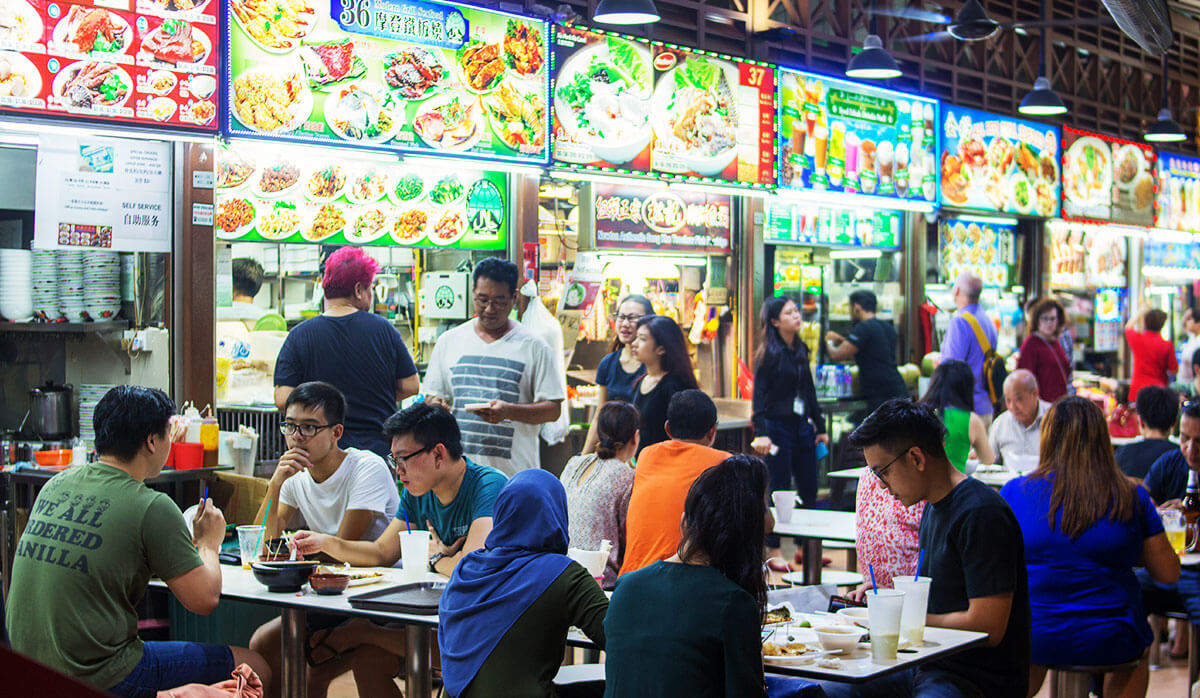
Paltry aid packages
The budget-meal offerings seem to be a new order. Earlier, the government had prepared an Assurance Package (AP) to cushion the impact of the two-phase GST increase, and enhanced the GST Voucher scheme that was supposed to provide help to lower- to middle-income Singaporean households.
Consisting mostly of annual cash disbursements over a period of five years and beginning December 2022, the AP covers all Singaporean citizens 21 years and above, plus special disbursements for senior citizens. The amount per citizen is based on income and property ownership. Seniors theoretically get the most, but even the highest annual sum each could get would be SGD 1,100 (US$816) or less than SGD 100 (US$74) a month.
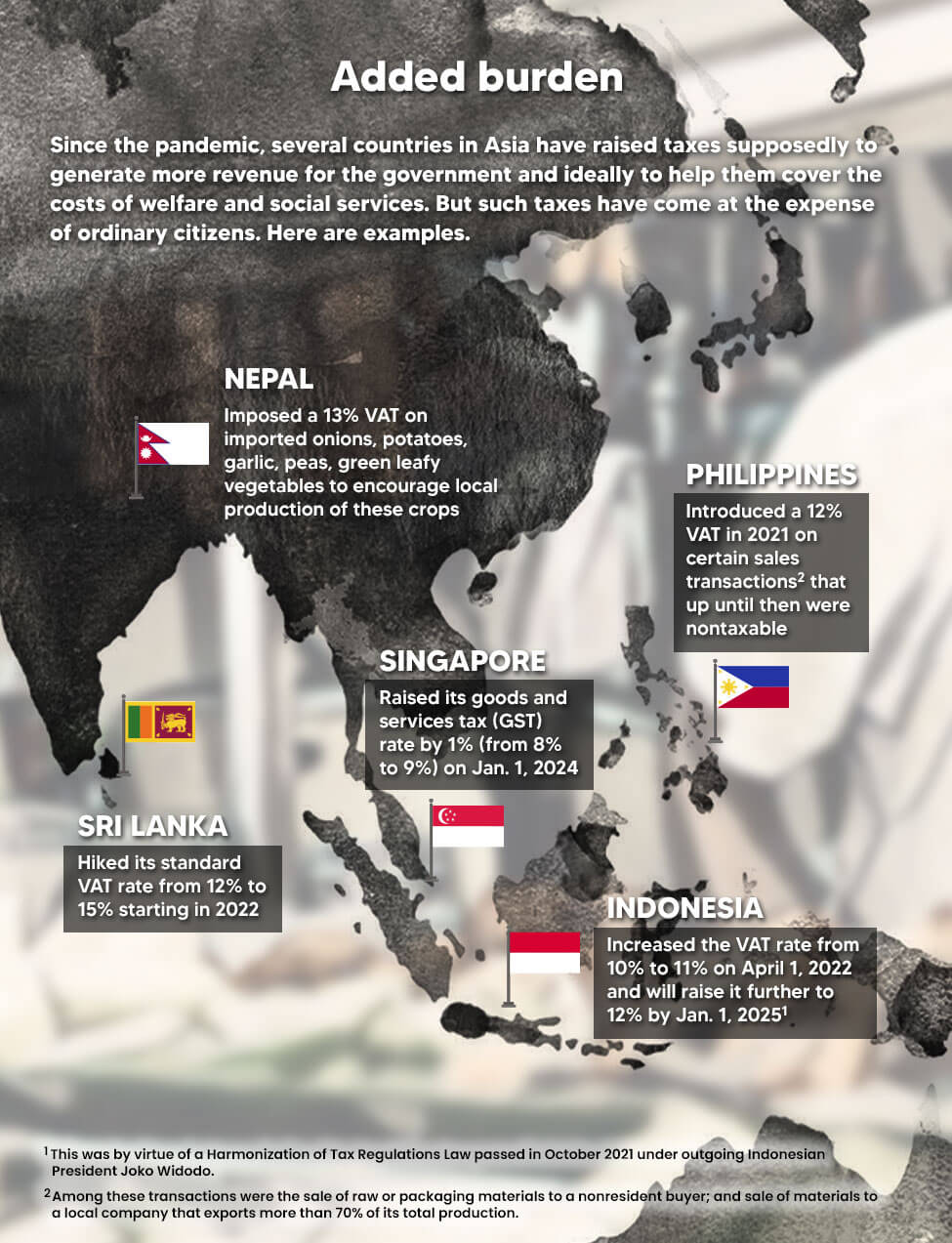
Singaporeans 20 years old and below, as well as those 55 and above, will also each receive a top-up totaling SGD 450 (US$334) spread over three years to their MediSave (the national healthcare saving scheme) accounts. The Citizens’ Consultative Committee Fund (CCF or ComCare) that was set up to further support vulnerable households is also subject to a top-up of SGD 1 million spread over five years.
Government data show that the average monthly income of the lowest 10 percent of Singapore’s nearly 1.4 million households is SGD 689 (US$512), which should theoretically qualify them for ComCare aid. Yet in the last fiscal year that ended in March 2023, only 36,400 households received financial help from the ComCare schemes under the Ministry of Social and Family Development’s (MSF).
To get ComCare help, one has to apply and be evaluated according to the set criteria. The latest official data shows that 35 percent of applicants were rejected. While the government says the main basis to qualify for ComCare aid is income, some applicants say that one has to be in debt or bankrupt to get approved.
Meanwhile, those who have received help are unsure if it was worth all the trouble. A ComCare beneficiary who believes he received help because he was bankrupt says, “The benefit is only about SGD 500 (US$371) for three months. I only managed to get it after two months, so the two months were tough for me as I went around borrowing to survive.”
He adds: “Due to my bankrupt status, it is also difficult for me to be employed. And the officer confirmed that they will cut off my benefits (once I get a job). It made me realize why there are so many underemployed Singaporeans and people resorting to criminal activities.”
As for the three-year, SGD-150 annual MediSave top-up, indications are that it isn’t going far enough. An emergency doctor tells ADC: “When I do surgery for my patients, the bills are easily SGD 5,000.24 (US$3712) to SGD 10,000 (US$7,425.48). If you were to include the 9-percent GST, it is easily another SGD 450 (US$334.10) to SGD 900. Do you really think the government financial benefits can cover up this GST increase?”
“Many times,” the doctor adds, “I must write letters of recommendations to refer them to the social workers to pay for their hospital bills. Not only that, most people who are in weak health and wait until it is serious before coming to us are also the low-income people. Some of them are elderly with no income. Sometimes I’m not just their doctor but also their therapist – to comfort them so that they will focus on recovery first.” ◉










